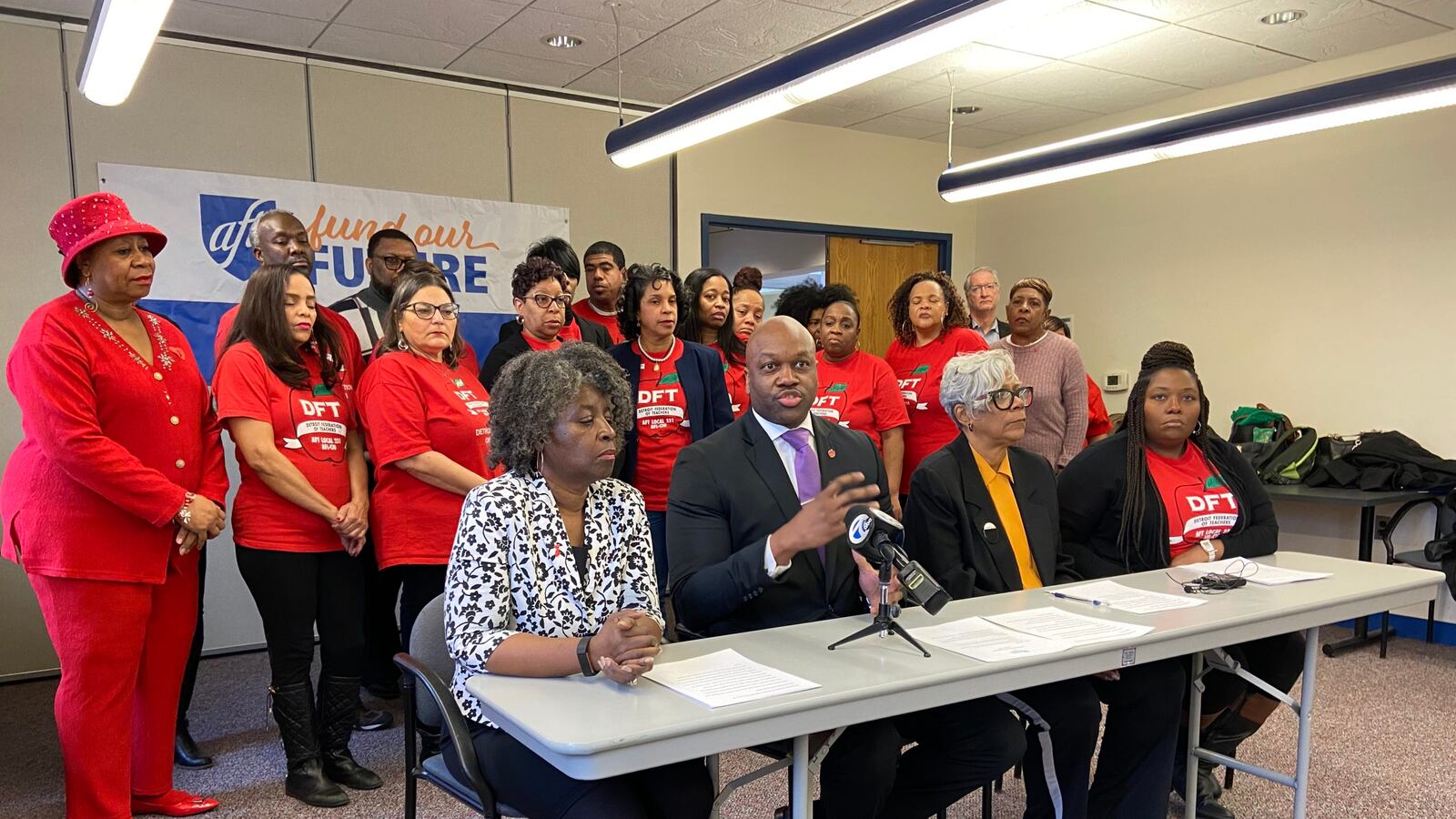Three school-based unions in Detroit are working together to win raises this year.
With contracts set to expire in June for workers in several job categories, the Detroit Public Schools Community District will be under pressure in the coming months to improve working conditions for thousands of employees.
“You want to bring in professionals, but you don’t want to give professional salaries,” said Stephanie Carreker, president of the Detroit Association of Educational Office Employees. “Our salaries are not comparable.”
The three unions, which also include the Detroit Federation of Teachers and the Detroit Federation of Paraprofessionals, collectively represent about 6,000 employees.
The unions and the district agree that the state isn’t providing adequate funding to educate roughly 51,000 students, many of whom have disabilities, are behind in reading, or are considered at risk of falling behind because they come from low-income families.
But that argument only goes so far with union leaders. Terrence Martin, president of the Detroit Federation of Teachers, said that after a near-bankruptcy in 2016, the district’s financial situation has improved enough to justify across-the-board raises.
“Over the last three or four years the district has put themselves in a very good financial position,” he said. “I think they have a fund balance that last year almost reached $200 million. So there is funding there to do a lot of things that we need them to do.”
It was unclear how much the district currently has in reserve. The district could not immediately be reached for comment.
Union and district leaders have sparred before over the best use of the district’s reserve funds.
When it came up last year, Superintendent Nikolai Vitti said that using the money for salaries would create a “funding hole” that would repeat the “financial sins of the district’s past.” He argued that the reserve funds don’t replenish every year and shouldn’t be used to cover annual expenses like salaries, but instead for one-time expenses like repairing certain buildings with pressing needs.
Vitti, who has repeatedly said he wants to pay competitive salaries to teachers and other staff, has insisted that the state needs to provide equitable funding in order for that to happen. During presentations held in the last two months to discuss the conditions of buildings in the district, Vitti has noted that the $8,142 per pupil the district receives in state funding is $1,434 per pupil less than what districts in 20 surrounding districts receive.
Martin acknowledged that district isn’t getting enough help from the state, pointing to the $500 million facilities crisis that remains an albatross around the district’s neck.
“Obviously there are some things that need to happen in Lansing to help them increase the school funding,” he said. He added that DFT would be “aggressive” in pressing its members to vote to renew the Wayne County enhancement millage, a county-wide schools millage that has helped the district pay for teacher bonuses. The renewal of the millage, which will appear on the November ballot, could bring $15.3 million to the district.
All three union leaders argued that a better contract would help the district attract and retain staff. Vitti took over in 2017, after nearly a decade of state-mandated emergency management, with promises of reducing the number of classrooms without a certified teacher. While that number has dropped from 275, it remains at 70.
Pay has played a key role in that strategy. Teachers received one-time bonuses, the most experienced teachers received pay increases, and the district changed its policy to allow incoming veteran teachers to be paid commensurate with their prior experience.
Martin said he hoped that going to the table with two other unions would lead to increased wages for staff districtwide.
“In school we’ve always seen ourselves as teams in classrooms, but we’ve never formalized any relationship in this regard,” he said. “We’re going to the table as one.”


